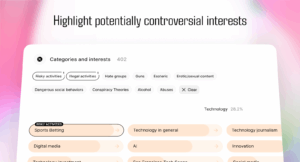How Project Amber Will Revolutionize Java

Key Takeaways
- Project Amber, announced by Java Language Architect at Oracle, Brian Goetz, aims to make Java a less verbose and more enjoyable language.
- The project plans to introduce local variable type inference, which would significantly simplify data classes and pattern matching.
- Project Amber is considered a “roof” for various changes that move the language in a common direction, but these changes don’t necessarily need to be shipped at once to make sense.
- The project’s development timeline is uncertain, but some speculate that some changes could be introduced in Java 10.
- The project’s name, Amber, was inspired by the Zelazny “Amber” books, in which “walking the Pattern” was a central theme.
Table of Contents
This is the editorial for the SitePoint Java Channel newsletter that we send out every other Friday. Subscribe here!
Earlier this week Brian Goetz, Java Language Architect at Oracle, officially announced Project Amber and I could not be more excited about it! It will continue what Java 8 began and make Java a much less verbose and even more fun language. Type inference, massively simplified data classes, pattern matching, … all of this has been bubbling up in recent months but it is great to see it put on official tracks.
(While this might be new to Java, non-Java devs might scoff and look down on us with comments like, “we’ve been using that for ten years, now.” Well, good for you but no reason to rain on our parade so stfu!)
Revolutionary Fighters
I’m sure you can’t wait to see those improvements I promised, so let’s do that first. Once we’ve explored them I will spend a few words on Project Amber and release date speculations.
(If you’re interested to see how these proposals and value types might play together, have a look at What Future Java Might Look Like).
Local Variable Type Inference
Java has done type inference since Java 5 (for type witnesses in generic methods) and the mechanism was extended in Java 7 (diamond operator), 8 (lambda parameter types), and 9 (diamond on anonymous classes). Under Project Amber it is planned to be extended to type declarations of local (!) variables:
// now
URL url = new URL("...")
URLConnectoin conn = url.openConnection();
Reader reader = new BufferedReader(new InputStreamReader(conn.getInputStream()));
// maybe in the future
var url = new URL("...")
var conn = url.openConnection();
var reader = new BufferedReader(new InputStreamReader(conn.getInputStream()));
Here, the types of url, conn, and reader are perfectly obvious. As a consequence the compiler can infer them, making it unnecessary for us to specify them.
Note that type inference is not dynamic typing – it’s still strong typing just with less typing (Brian’s pun, presumably intended). The type information will still end up in the bytecode and IDEs will also be able to show them – it’s just that we don’t have to write it out anymore.
For more information, have a look at JEP 286.
Enhanced Enums
As it stands, enums can not be generic, meaning you can not give individual enum instances fields of specific types:
// now
public enum FavoriteNumber {
INTEGER(42),
FLOAT(3.14);
// wouldn't it be nice if this were more specific than Number?
public final Number favorite;
FavoriteNumber(Number favorite) {
this.favorite = favorite;
}
}
Project Amber considers to let enums have type parameters:
// maybe in the future
public class FavoriteNumber<T extends Number> {
INTEGER<Interger>(42),
FLOAT<Float>(3.14);
// wouldn't it be nice if this were more specific than Number?
public final T favorite;
FavoriteNumber(T favorite) {
this.favorite = favorite;
}
}
And the great thing is, the compiler will perform sharp type checking and know which generic types a specific enum instance has:
// maybe in the future
float favorite = FavoriteNumber.FLOAT.favorite;
For more information, have a look at JEP 301.
Lambda Leftovers
Great name, eh? These are a couple of smaller improvements to lambda expressions and method references. The first is that the compiler will be better at picking the target for a lambda expression or method reference in situations where it has to pick one of several overloads:
// now; compile error: "ambiguous method call"
method(s -> false)
private void method(Predicate<String> p) { /* ... */ }
private void method(Function<String, String> f) { /* ... */ }
It is weird that the compiler thinks this is ambiguous because to us it very much isn’t. When lambda leftovers are implemented, the compiler agrees.
Java 8 deprecated _ as variable name and disallowed it as a lambda parameter name. Java 9 will disallow using it as variable names as well so it is free to get a special meaning, namely to mark unused lambda parameters (yes, more than one in the same expression):
// maybe in the future
// ignore the parameter marked as `_`
BiFunction<Integer, String, String> f3 = (i, _) -> String.valueOf(i);
// if there were a TriFunction:
BiFunction<Integer, String, String, String> f3 = (i, _, _) -> String.valueOf(i);
Finally, Project Amber explores the possibility to let lambda parameters shadow variables in the enclosing scope. This would make naming them a little easier because as it stands it can be a little onerous:
private Map<String, Integer> wordLengthCache;
// now
public int computeLength(String word) {
// can't reuse `word` in lambda, so... maybe `w`?
wordLengthCache.computeIfAbsent(word, w -> w.length());
}
// maybe in the future
public int computeLength(String word) {
// can't reuse `word` in lambda, so... maybe `w`?
wordLengthCache.computeIfAbsent(word, word -> word.length());
}
For more information, have a look at JEP 302.
Data Classes
We’ve all created plenty of simple data holder classes that needed dozens of lines of code for fields, constructor, accessors, equals, hashCode, toString. While IDEs happily generate all of that, making typing it unnecessary even today, it is still code that needs to be understood (does the constructor do any validation?) and maintained (better not forget to add that new field to equals).
In an aggressive move to reduce boilerplate, the compiler might generate all of that stuff on the fly without us having to bend a finger!
// maybe in the future
public class User(String firstName, String lastName, DateTime birthday) { }
We can get everything else I mentioned above for free and only need to actually implement what’s non-standard (maybe users have an ID that alone determines equality, so we’d want an according equals implementation). Getting rid of all that code would be a great boost for maintainability!
(There is no JEP for this proposal yet but Amber will adopt it as soon as it is.)
Pattern Matching
Java’s current switch statement is pretty weak. You can use it for primitives, enums and strings but that’s it. If you want to do anything more complex, you either resort to if–else–if chains or, if you can’t get the Gang of Four book out of your head, the visitor pattern.
Project Amber explores what is commonly known as pattern matching. It works over all types, can have conditions that are more complex than equality checks, and is an expression, meaning it results in a value that can be assigned. Here’s an example Brian showed at Devoxx Belgium a few months ago:
// maybe in the future
String formatted = switch (constant) {
case Integer i -> String.format("int %d", i);
case Byte b: //...
case Long l: // ...
// ...
default: formatted = "unknown"
}
(There is no JEP for this proposal yet but Amber will adopt it as soon as it is.)

Project Amber
Now that we know which features are currently being explored as part of Project Amber, it is time to take a closer look at the project itself. In the welcome mail it is described is an “incubation ground for selected productivity-oriented Java language JEPs.” Loosely said, its scope is defined as whatever JEP the expert group finds interesting and aligns with the overall mission statement:
To be considered for adoption by Project Amber, a feature should first be described by a JEP. This means that this is not the place for discussing random language feature ideas (the whole rest of the internet is still available for that); let’s keep the focus on the specific features that have been adopted.
Read that mail to get links to JEPs, mailing lists, and the repo.
Release Date
A natural question to have is, when will the project be shipped? When can you start writing that awesome code I keep promising? The most responsible answer is that nobody knows.
Leaving responsibility aside, we can speculate a little. Project Lambda, which brought lambda expressions and streams, took a little more than four years from inception in December 2009 to its debuting release in March 2014. Project Jigsaw, notorious for its delays, started a year earlier, in December 2008, and is only being shipped now, making it take almost nine years. Keep in mind, though, that Oracle bought Sun in 2010 and I can only assume that engineering efforts were adversely affected by the transition. Also, it seems to me that both projects are considerably more complex and monolithic than Amber (although both is hard to judge from the outside).
Project Amber is more of a roof for various changes that move the language into a common direction but might not have to be shipped at once to make sense. Under this assumption and guessing the project’s development time based on Lambda and Jigsaw, it seems plausible that some changes will make it into Java 10.
Before you ask: Nobody knows when 10 will be out! Again some speculation, back in 2012 Mark Reinhold, Chief Architect of the Java Platform Group, proposed a two-year release cycle that due to delays became more of a three-year cycle. Extrapolating the future from two data points (luckily I am not bound to scientific standards here), 2020 looks like a good guess.
Keep in mind, though, that Project Valhalla started in July 2014 and took on the massive undertaking to implement generic specialization and value types. It is not targeted for any release yet but it looks like it’s in the time frame to go into 10. If so, it could very well delay the release due to its complexity.
So bottom line is: Nobody knows. If I had to bet money I would put it on 2020. Fingers crossed.
About That Name…
Oh yeah, why is it called Project Amber? Because it’s shiny? Because it preserves dead things? I don’t know.
Instead of spending needless cycles thinking about it I opted to ask Brian himself but he was either very secretive or very open:
Why not?
— Brian Goetz (@BrianGoetz) March 17, 2017
He made a proposal, though, that we come up with an explanation, so why not?
Tell you what. Have a contest to come up with candidates. I'll put real answer in envelope. Then we'll compare best answer to ours!
— Brian Goetz (@BrianGoetz) March 17, 2017
So here’s the deal: You leave a comment or tweet (don’t forget to mention me) with your explanation why it might be called Project Amber and I will let Brian and his team choose the one they like best (deadline: March 26th). To make this a real competition, the winner gets a copy of my upcoming book about the Java 9 module system.
So what do you think? Why Amber?
Two weeks later…
Submissions
Thank you everybody for your participation. Your ideas:
https://twitter.com/warpedjavaguy/status/846857778429751297
Because it's kind of a digestive system that will allow cool ideas to ferment into cool features ?
— MaartenVanPuymbroeck (@kwakeroni) March 28, 2017
Or more probable: amber was called elektron in Greek, which might mean "beaming Sun" (according to Wikipedia)
— MaartenVanPuymbroeck (@kwakeroni) March 28, 2017
https://twitter.com/emmolam/status/844558347604975618
1st comes to mind is Jurassic Park. Dunno but this article shows the name Amber in Ancient times https://t.co/9aOTO9A3V2
— Carl Dea ⒻⓍ🕊 (@carldea) March 18, 2017
@nipafx amber: "because it will make your sticky opaque codebase lean and transparent" :P #java
— moelholm (@moelholm) March 18, 2017
https://twitter.com/zregvart/status/843192588383535106
fancy way to say we should be electrified? amber in Greek is elektron and is related to triboelectric effect? 🙂 my2cent
— Luca Guadagnini 🌍 (@lucaguada) March 17, 2017
Every time people mention “Amber” I remember this part of Jurasic Park haha, maybe all this new features are coming from the DNA of old programmers but with fresh ideas. (Juan Moreno)
Project Coin -> Milling project coin -> While we’ve got our hands rummaging around in the treasure chest we also happen to find a semi precious stone -> Amber (Andreas Aronsson)
Amber simply contains all that we wanted for that project:
First astonishment to catch your interest,
then momentum to keep you going,
brilliance shining everywhere,
encouraging you not only to evolute
but to revolutionize your code.
(matameko)
We didn’t want Java to become fossilized, but we also want the features we’re adding to make the language dazzle again! (Jim Bethancourt)
I guess they just had name contest and there’s no logic behind it. Nice. Shiny. Short. No problems with other cultures and languages. (Jukka Nikki)
It could be also name of daughter of project lead. (Jukka Nikki)
And The Winner is…
… Kwakeroni (hand-picked by Brian Goetz himself) with:
Or more probable: amber was called elektron in Greek, which might mean "beaming Sun" (according to Wikipedia)
— MaartenVanPuymbroeck (@kwakeroni) March 28, 2017
Congratulations! 😀 On your great detective skills as well as the price. While the explanation is definitely intriguing, Brian has another one:
Our inspiration was from the Zelazny "Amber" books, in which "walking the Pattern" was a central theme. https://t.co/705iQtcV9J
— Brian Goetz (@BrianGoetz) April 2, 2017
So now we know why the project revolutionizing Java is called Amber….
Frequently Asked Questions about Project Amber
What is Project Amber in Java?
Project Amber is an initiative by Oracle, the company behind Java, to introduce smaller, productivity-oriented Java language features. It aims to make coding in Java simpler and more expressive, thereby improving developer productivity. The project is part of the JDK Enhancement Proposals (JEPs) and includes features like local-variable type inference, switch expressions, and more.
How will Project Amber revolutionize Java?
Project Amber is set to revolutionize Java by introducing several new features that will make the language more expressive and efficient. These features aim to reduce the verbosity of Java, making it easier to read and write. This will significantly improve the productivity of developers and make Java more appealing to use for various applications.
What are some of the features introduced by Project Amber?
Project Amber introduces several new features to Java. These include local-variable type inference, which allows developers to declare variables without specifying their type; switch expressions, which simplify the writing of switch statements; and pattern matching, which makes it easier to handle complex data types. These features aim to make Java more expressive and efficient.
How does Project Amber compare to other Java projects?
Unlike other Java projects that focus on large system-level changes, Project Amber focuses on smaller, productivity-oriented language features. It aims to make coding in Java simpler and more expressive, thereby improving developer productivity. This makes Project Amber unique in its approach to enhancing the Java language.
What is the significance of local-variable type inference in Project Amber?
Local-variable type inference, introduced by Project Amber, is a significant feature that allows developers to declare variables without specifying their type. This makes the code cleaner and easier to read, thereby improving developer productivity. It also reduces the verbosity of Java, making it more appealing to use for various applications.
How does switch expressions in Project Amber improve Java?
Switch expressions, introduced by Project Amber, simplify the writing of switch statements in Java. They allow developers to write more concise and expressive code, thereby improving readability and maintainability. This feature is a significant improvement over the traditional switch statement, making Java more efficient and productive.
What is pattern matching in Project Amber?
Pattern matching, introduced by Project Amber, is a feature that makes it easier to handle complex data types in Java. It allows developers to destructure data types and match patterns, thereby simplifying the code and making it more readable. This feature significantly enhances the expressiveness of Java.
How does Project Amber improve developer productivity?
Project Amber improves developer productivity by introducing several new features that make Java more expressive and efficient. These features reduce the verbosity of Java, making it easier to read and write. This allows developers to write cleaner, more maintainable code, thereby improving their productivity.
How does Project Amber make Java more appealing?
Project Amber makes Java more appealing by introducing features that make the language more expressive and efficient. These features reduce the verbosity of Java, making it easier to read and write. This makes Java more appealing to use for various applications, attracting more developers to the language.
What is the future of Java with Project Amber?
With Project Amber, the future of Java looks promising. The project introduces several new features that make Java more expressive and efficient, thereby improving developer productivity. These features are set to revolutionize Java, making it more appealing to use for various applications. This will likely attract more developers to the language, ensuring its continued growth and popularity.
Nicolai is a thirty year old boy, as the narrator would put it, who has found his passion in software development. He constantly reads, thinks, and writes about it, and codes for a living as well as for fun. Nicolai is the former editor of SitePoint's Java channel, writes The Java 9 Module System with Manning, blogs about software development on codefx.org, and is a long-tail contributor to several open source projects. You can hire him for all kinds of things.








